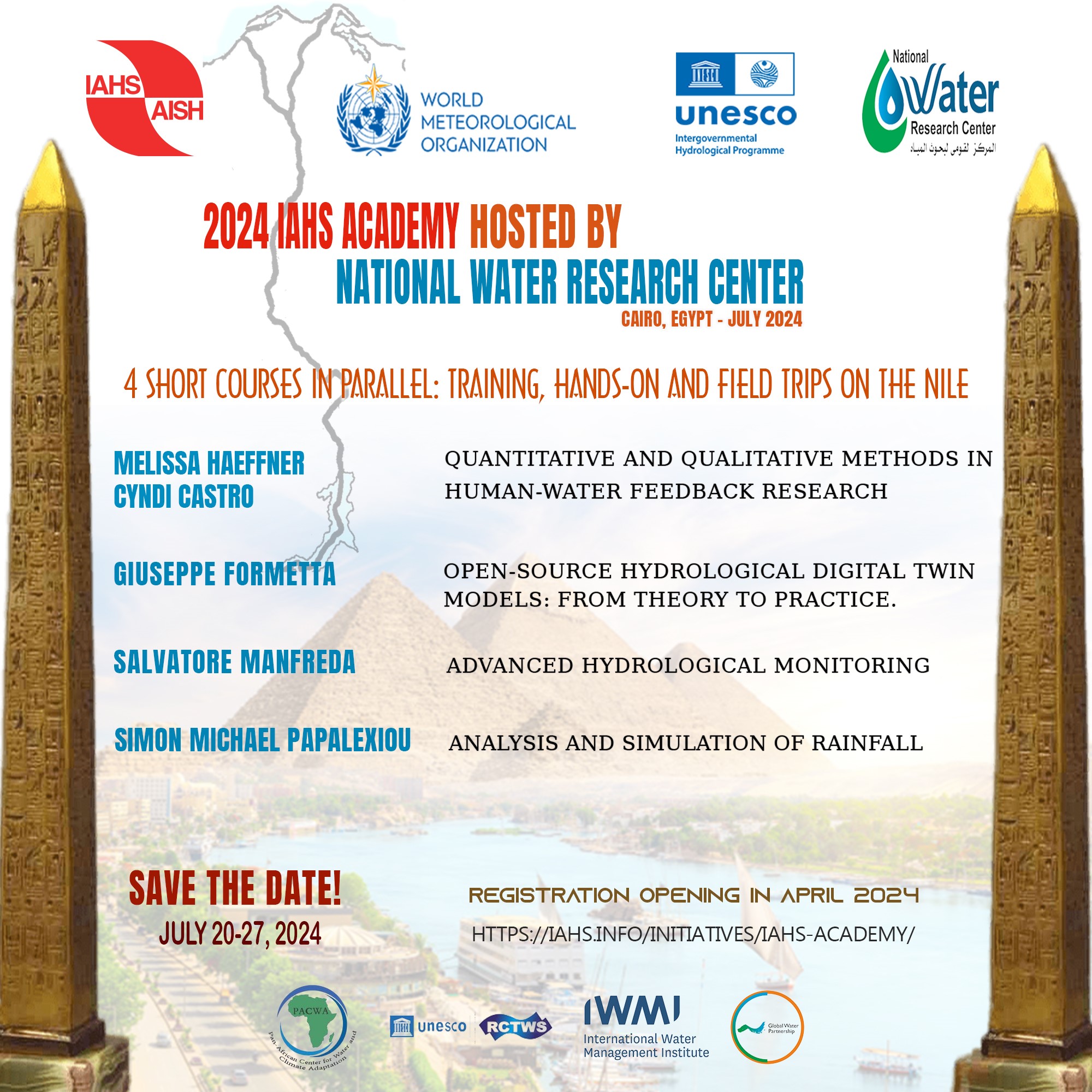The IAHS – International Association of Hydrological Sciences is proud to announce dates (July 20-27, 2024) and Venue (Cairo, Egypt) of the first edition of the IAHS Academy, the newly established advanced training and educational programs to advance and promote hydrological sciences globally
This 1st edition is organised by IAHS, UNESCO Intergovernmental Hydrological Programme (IHP), World Meteorological Organization WMO and the National Water Research Center (NWRC), and Pan African Center for Water and Climate Adaptation (PACWA) of Egypt and further supported by international (IWMI, GWP) and Egyptian organizations.
IAHS Academy events aim to organize several courses/topics in parallel fostering a critical mass of lecturers and students in the same week and venue.
This july in Cairo you have the chance to select among 4 topics providing advanced scientific and applied research training, hands-on and amazing opportunities to perform all together field trips on the Nile river
Please visit the IAHS Academy web page and fill up the pre-application form if you are interested in participating to this event
Lecturers and topics include;
Melissa Haeffner and Cyndi Castro: Quantitative and Qualitative Methods in Human-Water Feedback Research
Giuseppe Formetta: Open-source hydrological digital twin models: from theory to practice.
Salvatore Manfreda: Advanced Hydrological Monitoring
Simon Michael Papalexiou: Analysis and Simulation of Rainfall
IAHS Academy Steering Committee:
Fernando Nardi (IAHS Academy Chair), Salvatore Grimaldi (IAHS), Christophe CUDENNEC (IAHS), Moctar DEMBELE (IAHS), Abou Amani (UNESCO IHP), Stefan Uhlenbrook (WMO), Sherif Mohamady El Sayed (NWRC)
Local Organizing Committee (LOC):
Marwa Ali (NWRC), Mohamed Embabay (NWRC), Mahmoud Saleh (NWRC), Amany Essam (RCTWS/PACWA)
